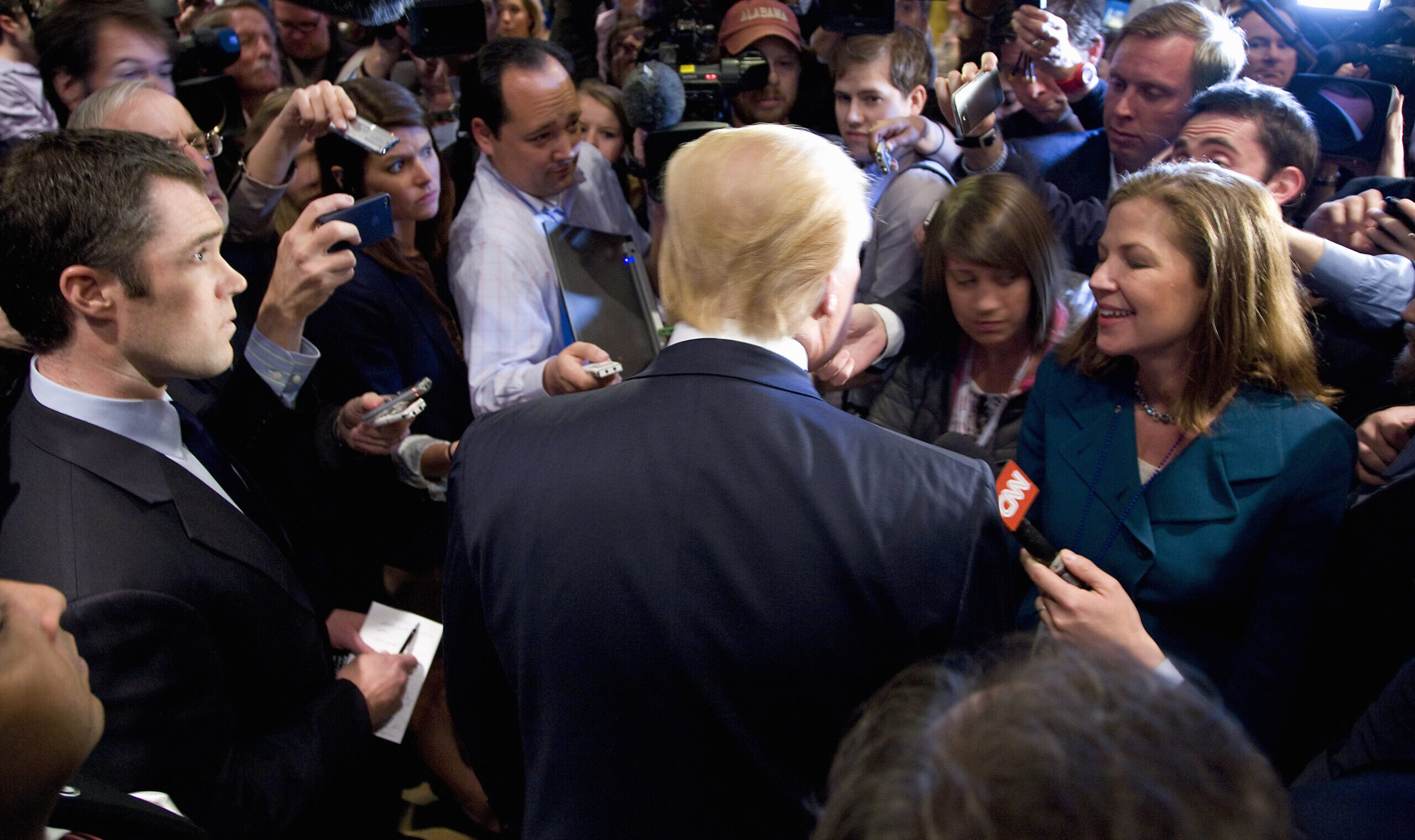Don’t Mention The Deity
How about social conservatives make their arguments without bringing God into it? By all means, let faith inform one’s values, but let reason inform one’s public arguments. ~Kathleen Parker
This is the standard Damon Linker line, which has always had the small problem that it doesn’t make sense. That’s not quite fair. It makes sense, provided that the goal is to keep religious people from making public arguments that have any force. Parker, like Linker, would likely deny that this is the goal. In Parker’s case, I expect that this is because she hasn’t thought through the implications. Were we to follow Parker’s model, we would on the one hand need to say that arguments informed by religious teaching are to some degree irrational by definition (use faith over here, but use reason in public, which implies that there is nothing rational about faith or that the two are not complementary). On the other hand, we would also have to say that our public arguments cannot invoke “values,” which are in any case derived from religious teaching and therefore unsuitable to public discourse. Even to the extent that “values” might be allowed, they would have to be “values” that do not conflict with pluralist, liberal “values.” This is the Social Gospel loophole, which permits the use of Christian discourse for left-liberal ends, but which clearly forbids any version or interpretation of Christian teaching that conflicts with these “values.”
The point is not that there are not secular arguments against abortion, to take the example Parker uses, as there clearly are. Secular people on the whole do not seem terribly interested in those arguments, nor do they show any more respect for them than they do to explicitly religious ones, because the issue is not the kind of argument being made but the moral and political conclusions that are being drawn. This may reflect the extent to which different political and philosophical traditions function as little more than tribes that use mutually unintelligible mythologies, in which the answers are all scripted and known before the inquiry begins. All of this has happened before, and all of this will happen again….Debates cease to be an exercise in persuasion, and become instead an occasion for performance and expressing identity. Structuralists everywhere will be thrilled.
The point here is that social and religious conservatives should not have to truncate, abbreviate or deny their religious teachings when making public arguments, which is effectively what they would have to do if they are not to refer to God or religious teachings in public discourse. They could not in good conscience do so, but leaving that aside for a moment we should also acknowledge that it puts an undue burden on religious believers to insist that they leave out appeals to their core beliefs, which are or are supposed to be at the center of their understanding of man, society, creation and reason itself. It’s as if you said that liberals can make their arguments, but they must never refer to equality for any reason, but it is even more constricting than that. In the end, what Parker is saying religious conservatives should do is to accept the premises and terms of the debate that are hostile to their side before it begins, and then try to make an argument for their view under those constraints. As a matter of rhetoric and politics, this is a losing proposition. Once you have accepted fundamental assumptions of your opponents (and accepting that one can only use public reason in argument is to concede a fundamental liberal claim), you are merely negotiating the extent of your defeat.
Many modern conservatives will look at Parker’s statement and agree with it, because, as Rod reminds us of MacIntyre’s observation, “in America, all political arguments are among conservative liberals, liberal liberals, and radical liberals.” This is true even of a great many religious conservatives, which is why time and again when religious conservatives are challenged in this way the best response many of them can muster is that “they have a right” to free speech and religious liberty. Indeed they do, but that is not nearly powerful enough and once again accepts–as most public pro-life rhetoric already does–that we must speak in terms of individual autonomy and individual rights. Perhaps that is the most telling thing of all, in that it acknowledges that we do not recognize appeals to God or obligations to God as being in any way authoritative, but we invest appeals to the self and the rights of the self with tremendous weight, which is a function of a culture that is egocentric and decidedly not theocentric.
